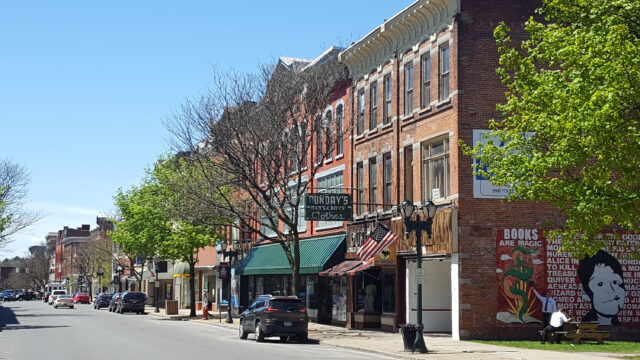Planning for Recovery


As municipalities continue to deal with the financial impacts of the coronavirus pandemic, including loss of sales and use taxes, there is an opportunity for each community to begin planning for recovery when the crisis ends.
The impacts of the pandemic emergency have been similar to a severe weather event like a major hurricane or significant flooding. However, unlike a weather event that affects a specific area, the impacts of the pandemic have been widespread.
The lessons and process of recovery planning from severe weather events can be a starting point for communities to begin to build back better. The shock of the pandemic also provides motivation for communities and state governments to make immediate and long-term changes.
Strategic Planning
One of the immediate actions municipalities should consider initiating is a strategic planning process to assess and address the impacts of the pandemic. Establishing a task force of municipal staff, residents, and businesses to review the impacts of the pandemic on the community would be an ideal place to start. Surveying residents and businesses would provide key data to understand the effects of the pandemic on the community.
Based on the data obtained from the task forces and surveys, a strategic recovery plan can be tailored and focused to address key issues that will accelerate recovery. Some state programs are also providing funding to develop recovery plans.
Funding
Since resiliency and recovery are key themes emerging from recently released grant funding programs, communities should be prepared to provide proposals that address those priorities.
At the federal level, under the Build Back Better agenda, substantial infrastructure funding for roads, bridges, energy grids, and broadband is anticipated. The proposed 2021 New York State budget also includes funding for significant infrastructure investments.
Finance
Municipal budgets, especially those reliant on sales tax, have been stressed since the pandemic hit. Since most communities are currently reviewing their 2021 fiscal year budget, they will need to be creative to provide the same level of services they have in the past. Some budget considerations may include:
- Use of Reserve Funds – Fortunately, many communities – because of the relatively healthy economy before the pandemic – have adequate reserve funds they can use to bolster their 2021 budgets.
- Refinancing Debt – With interest rates at historic lows even before the pandemic, now is the time to review and refinance projects funded with higher interest rates.
- Consolidation of Services – Many communities have deliberated or studied consolidation in the past, but the pandemic provides motivation to implement consolidation.
- Investing in Upgraded Infrastructure – Communities should be prepared for recovery grant funding and specifically investing in infrastructure that reduces long-term operating costs or user fees.
States can also help municipalities. The New York Association of Counties recently issued some recommended temporary and long-term reforms to help struggling municipal budgets, including increased sales tax rates, flexibility to exceed tax caps, and extending maximum borrowing terms.
Land Use and Economic Development Planning
The immediate and long-term impacts of the pandemic on public and private land uses could be substantial. Many communities have immediately addressed the social distancing requirements by granting use of public right-of-ways for outdoor dining, outdoor recreation, and bike lanes. Some municipalities are considering permanently closing select streets for pedestrian use.
Future land use and associated zoning changes will be a mid- to long-term consideration for many communities because of the pandemic. Single-use zoning for office parks or retail uses will need to be reconsidered, as internet shopping and working from home have potentially changed those industries forever.
Obtaining data on the impacts of the pandemic on specific industries within a community will be important to forecast potential future zoning changes. While some industries have suffered, others have done well during the pandemic such as distribution companies, delivery services, home office suppliers, and supermarkets.
Be Prepared for Recovery
While imagining a future after the pandemic may be difficult, communities that understand the impacts of the pandemic and begin planning for their future will accelerate community recovery. The recovery strategy may need to be flexible as we continue to learn more, but having an action plan will be a proactive step to ensure your community’s future.